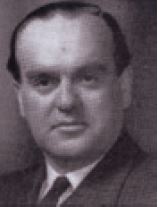Philip was born at Leigh-on-Sea on 21 September 1921 and died on 13 January 2007.

He was educated at Magdalen College School Oxford before joining the Westminster Dragoons at the beginning of the war.
After initial training, he served with the Fife and Forfar Yeomanry before being posted to the 47th Cavalry Indian Army as a lieutenant.
After a year Philip was granted a regular commission and transferred to the 7th Light Cavalry serving in the Burma Campaign.
After the war he returned to the UK and was G3 ASD 1 in the War Office where he met Richard Dill, an 8th Hussar, also serving on the staff. They became lifelong friends and, through Richard, Philip transferred to the British Army as an 8th Hussar.
His time with the Regiment took him to BAOR and Egypt, before returning to the UK as Adjutant of the Yorkshire Hussars. After attending the Staff College he was posted to Cyprus as G2 Ops Planning for two years, returning to Luneburg as Squadron Leader of ‘HQ’ Squadron until amalgamation with the 4th Hussars in 1958, when he took ‘The Golden Bowler’.
Throughout his time as a soldier, he held many staff appointments and demonstrated his considerable ability and clear thinking which served him well in his civilian career to come.
After leaving the Regiment Philip joined Samuel Fox and Co, a subsidiary of the United Steels Company based in Yorkshire. Joining as an assistant sales manager in July 1959 he progressed rapidly to become production controller in 1960 and commercial manager a year later when he was appointed to the board.
His meteoric rise was remarkable for those days and he set about his task with great drive and enthusiasm, totally reorganising the commercial division of the company and bringing in a number of ex-services personnel to sell and promote stainless and special steels worldwide.
It was the first time the company had exported steel products and Philip Bromiley can take the credit for developing the European, American and Chinese markets for which the company received the Duke of Edinburgh’s award.
Following nationalisation, he became the managing director of the special steels division in Sheffield and then of the Strip Mills Division covering South Wales, Teeside and Ravenscraig before retiring in 1976.
Philip was a hard taskmaster and at times could be ruthless but one of his greatest strengths in business was his ability to get quickly to the nub of the problem.
He adopted the principle of working hard play hard, and it was fun to be a member of his team! Philip Bromiley is survived by his first wife Judy, a son and two daughters, and by his second wife Mary.


